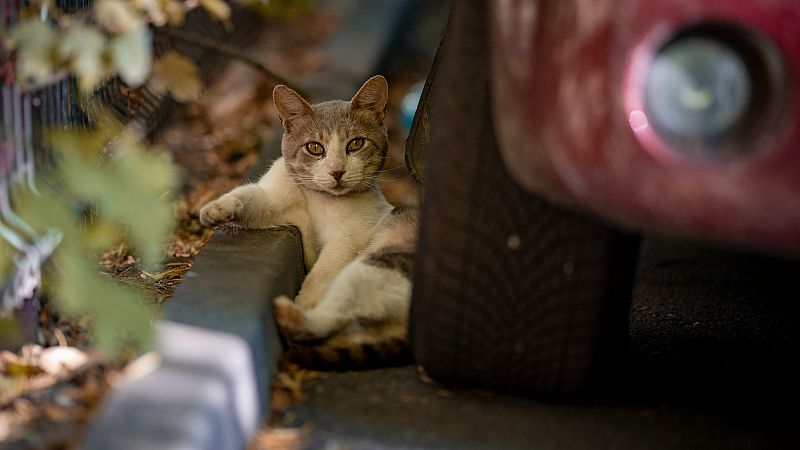How older cats enjoy retirement in South Africa

These friendly felines at the Lucky Lucy Foundation retirement home are just some of the 391 cats who have found a second chance at life after being rescued in the Swartland area, north of Cape Town.
Most have had owners, but were abandoned or given away.
Often these cats have injuries, or have health problems, others are simply old and unwanted.
Here they are rehabilitated and if possible rehomed, others can live out the reminder of their lives in comfort.
Board member Patrys Niemand explains they started off as a general rescue centre, but later added a sanctuary for eldery cats.
“We saw that some of the older cats struggle in the main population. Cats that are on chronic medication, especially with arthritis and illnesses like that, where they get agitated with the younger generation cats. And that’s when we decided that when we do get the funding, we would like to start a retirement home for these cats, where they can come. It’s not as many as in the general population. And here they will have all the comforts from home and where they can stay out their life,” says Niemand.
The cat retirement home has been in operation since 2024 allowing the elderly, infirm, disabled to live in peace and comfort.
There are currently 36 cats living in the retirement home section, and as time goes by more and more cats will join from the main cattery next door.
One of the retired cats is Alicia who has a chronic health condition.
Volunteer Kerry-Jean Green explains her traumatic history.
“So Alicia joined us, she came to us, we received a call to say that she had been poisoned. And when she came in to Lucky Lucy she was unable to walk. She was treated for poisoning, and we rehabed her here at the foundation. And obviously the poisoning caused her to have diabetes insipidus. And so she has her special medication every day,” she says.
Clover came to the Lucky Lucy Foundation with a serious physical injury, says Niemand.
“This is Clover. She came to us from Woodstock. A family saw a homeless person trying to push a cat down in a bag into a drain.”
Clover’s jaw was broken when she arrived here, but she is now back to good health after receiving medical treatment.
In total the cats eat 795 kilograms of dry food every month.
Running the Lucky Lucy Foundation costs about US$12,000 per month, which is raised through private donations.
The foundation also rescues and rehomes dogs.
Duandri Botha is a veterinarian based in the nearby town of Malmesbury.
She explains the Lucky Lucy is providing a service that can't be found elsewhere.
“If we phone them and say, listen we’ve got an old cat, her elderly owner is going to an old age home and she can’t keep her cat, the cat is almost as old as her elderly owner, they say to us, don’t put the cat down the cat can come to the retirement home. They help in those cases where any other place... the SPCA is full, they don’t have place. To rehome an adult cat is difficult, whereas Lucky Lucy is geared towards these kind of retirement cats, and they live the good life there. Sometimes I think they live better there in the retirement home than my own cats do,” says Botha.
In addition to the cattery and its retirement home, the Lucky Lucy Foundation is involved in outreach work for cats and dogs in four nearby low-income neighbourhoods.
They provide services like medical treatment, sterilisations, and provide pet food to those communities.
In Riverlands community, a kitten is living under a caravan.
Niemand provides eye drops for an eye infection, gives flea treatment and provides cat food.
Niemand will return to sterilise the kitten once it is a bit older.
Life in the retirement home seems idyllic compared to life on the streets which is the unhappy reality for most of these cats.
Yesterday

